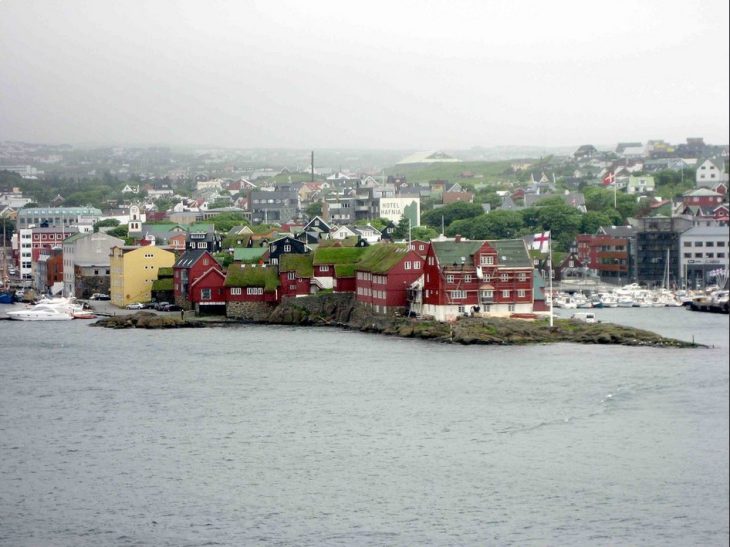
Word of the Day: Commodious
Today’s word of the day is commodious, an adjective that means “spacious and convenient; roomy” or “ample or adequate for a particular purpose” (https://www.dictionary.com/browse/commodious). Dictionary.com says that it appeared in English “1375–1425; late Middle English <Medieval Latin commodiōsus, equivalent to Latin commodi(tās) convenience (see commodity) + –ōsus -ous (ibid.).
Etymonline.com says that commodious entered English in the “early 15c., ‘beneficial, convenient,’ from Old French commodios and directly from Medieval Latin commodiosus ‘convenient, useful,’ from Latin commodus ‘proper, fit, appropriate, convenient, satisfactory,’ from com-, here perhaps an intensive prefix (see com-), + modus ‘measure, manner’ (from PIE root *med- ‘take appropriate measures’). Meaning ‘conveniently roomy, spacious’ is attested from 1550s” (https://www.etymonline.com/search?q=+commodious).
On this date in 1881, Jens Hendrik Oliver Djurhuus, called Janus Djurhuus (1881-1948), was born on the Faroe Islands. He is called the first modern Faroese poet.
Let me back up a minute because it may be you don’t know about the Faroe Islands. The Faroe Islands are an archipelago in the North Atlantic. Although a territory of Denmark, it actually lies 200 miles NNW from the UK, about halfway between Norway and Iceland. Archaeologists have found evidence of human settlement going back 2000 years, but the history of the Faroe Islands doesn’t really begin until the 9th century A.D., though even there the history is in the form of Norse sagas rather than what we would consider history. The Færeyinga saga recounts some of that mytho-history, including the settlement of the islands at a time when the King of Norway, Harold Fairhair, was abusing his authority. But it was actually written in Iceland, around the year 1200, and the original manuscript is lost, but parts of the saga appear in other Norse sagas, though the accounts differ.
Jens Christian Djurhuus (1773-1853), Janus’s grandfather, was the first to write poetry in Faroese. He wrote ballads in the traditional Danish style as well as some satires. Hans Andrias Djurhuus (1883-1951), Janus’s younger brother, was also a well-known poet. In fact, the two were known as the Áarstova brothers after the house they grew up in in Torshavn. Hans is known for his national poetry ad children’s poetry.
Janus Djurhuus left the Faroe Islands for Copenhagen as a young man to study law. He became a lawyer and stayed in Denmark until the late ‘30s, when he returned to the islands. In addition to the law, he studied Latin and Greek and even translated some classical works into Faroese. “His poetry combines Classical and Norse mythology. The language of his poems draws on both modern Faroese and the language of the traditional ballads, as well as ancient and modern poetry in other Scandinavian languages; their rhythm is also influenced by ancient Greek and modern German poetry” (https://kids.kiddle.co/Janus_Djurhuus).
Sadly, it is very hard to find any of Djurhuus’s poetry in English. I guess I’ll have to go visit the Faroe Islands in order to find some of his poetry. But it’s difficult to get there, and I’m not sure how I would handle the weather. The highs in the summer are not much over 60F. I’m not sure how commodious I would find that.
Today’s image is “A view of Torshavn, Faroe Islands, with the historical neighborhood Tinganes in the center,” posted to Flickr by David Stanley (https://www.flickr.com/photos/davidstanleytravel/4902589772). Torshavn was the home of Janus Djurhuus and his brother Hans.